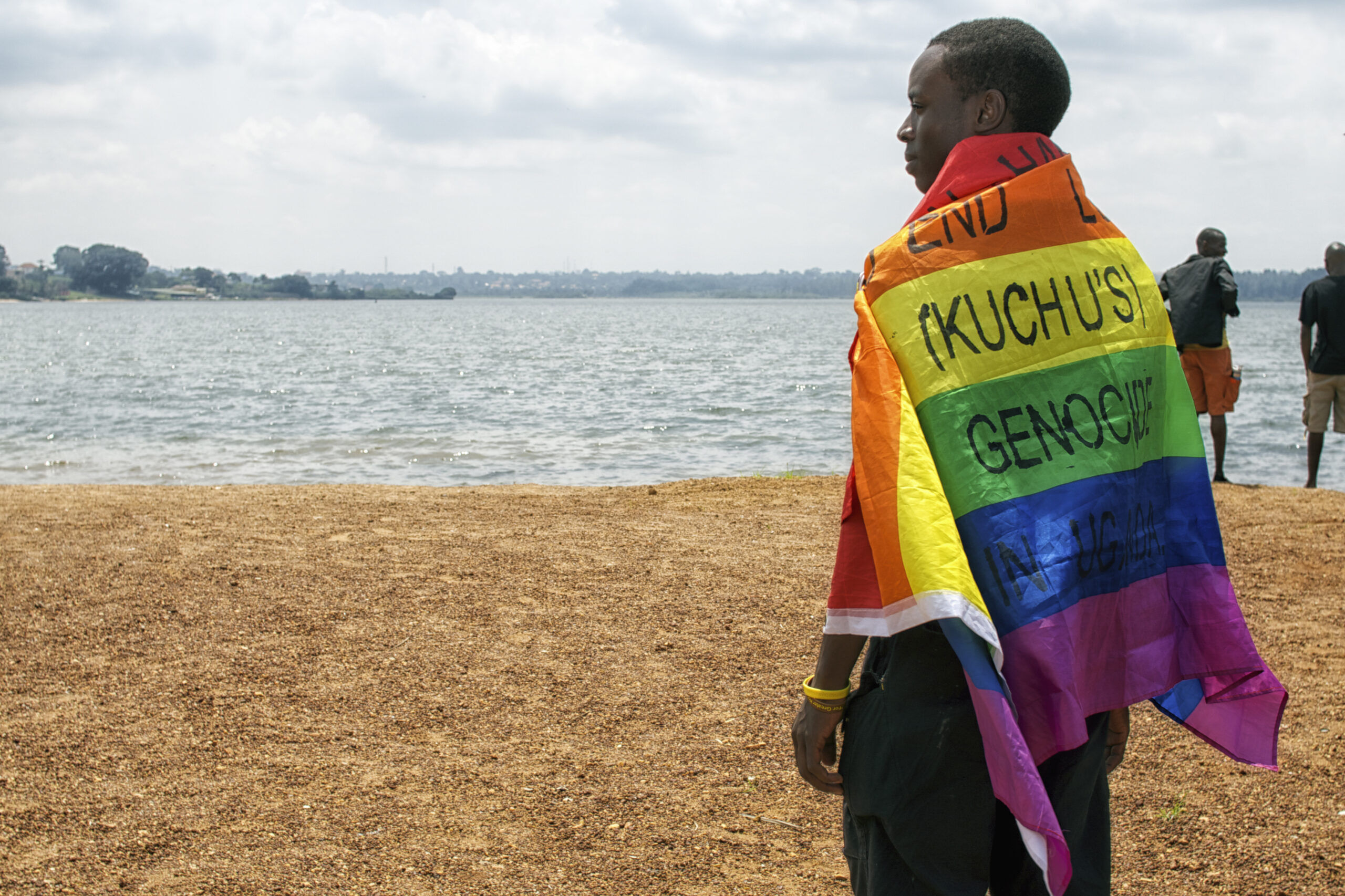In May, Uganda passed one of the most draconian anti-LGBTQ+ laws in the world. In addition to endangering the lives of countless queer Ugandans, the law is also literally impoverishing the straight and cis community, the New York Times reports.
Uganda’s Anti-Homosexuality Act not only reaffirms existing life imprisonment penalties for same-sex acts, it enables the death penalty for “serial offenders” or so-called “aggravated homosexuality” (same-sex relations with a disabled, elderly or HIV-positive person regardless of consent). Among other stipulations, the law criminalizes public advocacy for LGBTQ+ people, requires landlords to evict queer tenants and doctors to report queer patients to the authorities.
On December 18, the Constitutional Court in Uganda held a hearing on the constitutionality of the law, and it could reach a decision by early January. In the meantime, Uganda’s citizens are suffering economic hardship.
In the immediate aftermath of the law’s passage, Uganda faced international condemnation (even from right-wing figures eager to score tolerance points). President Biden along with many European leaders threatened sanctions that would already cripple the country’s already struggling economy. The US cut direct aid and removed Uganda from the African Growth and Opportunity Act, which waives US tariffs. The World Bank announced a pause on new projects in Uganda in order to “protect sexual and gender minorities from discrimination and exclusion in the projects we finance.”
Join the frontline of change
Be informed, be inspired, and be part of the conversation that’s shaping a queerer world with our twice-a-week newsletter.
Ugandan business owners have faced more direct financial consequences. Textile makers have reported abandonment from international buyers who fear that a “Made in Uganda” label would ignite backlash. The tourist economy is especially hard-hit, with international visitors canceling hotel bookings and wildlife tours.
Related:
New Zealand may soon ban trans people from all public sports
Trans panic is making its way across the globe.
Simon Azarwagye, who owns one such safari company, said that 60 out of 89 potential clients (each amounting to roughly $15k per couple) ghosted him in the aftermath of the law’s passage. “A few who spoke to me explained, ‘It’s not safe to come to Uganda because of that law,’” Azarwagye said.
Venugopal Rao, chief executive for a construction company, described the difficulty in securing financial backers. “We had a face-to-face meeting with an American private equity firm, and one of the guys, who runs the firm, made clear he had a moral problem with the law,” said Rao. “We could get money for our projects in Tanzania and in the Democratic Republic of Congo. But not Uganda.”
Proponents for the Anti-Homosexuality Act have framed LGBTQ+ tolerance as another form of Western colonialism. In passing the bill, Parliament speaker Anita Annet Among said, “The Western world will not come to rule Uganda.” In actuality, queerphobic laws like this are an explicit vestige of the colonial era. Uganda’s first anti-sodomy law (which remains on the books) was passed by the British government in 1950.
But the anti-colonial framing remains, and some advocates likewise fear that the court will be less incentivized to overturn the law because doing so will come across as weakness in the face of Western pressure. But others credit the sanctions with serving as a warning to countries who might consider similar legislation.
Don't forget to share:
Help make sure LGBTQ+ stories are being told...
We can't rely on mainstream media to tell our stories. That's why we don't lock our articles behind a paywall. Will you support our mission with a contribution today?
Cancel anytime · Proudly LGBTQ+ owned and operated
Read More in Impact
The Latest on INTO
Subscribe to get a twice-weekly dose of queer news, updates, and insights from the INTO team.
in Your Inbox














